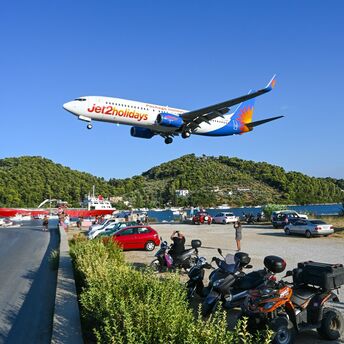Remote Work Revolution Impacts Train Travel in the UK

The use of train season tickets in Great Britain has drastically fallen, with only 13% of journeys made using these tickets in the year ending March 2023, compared to over a third before the COVID-19 pandemic. This trend is largely driven by a shift towards remote working, which has reshaped travel patterns across the country.
The Office of Rail and Road (ORR) reports that the increase in remote work, rising ticket prices, and dissatisfaction with rail service reliability are key factors behind the decline. For travelers, this change presents both challenges and opportunities.
Annual season tickets were once a staple for daily commuters, offering cost-effective travel for those journeying five days a week. However, with more people like Ashley Holmes, a digital designer from Fleet, Hampshire, working from home part-time, the necessity and value of these tickets have diminished. Holmes mentioned that his season ticket cost has risen from £3,500 to around £5,000, making it less economical as he now commutes to London only three days a week.
Travelers have also voiced concerns over the quality of rail services. Holmes described his experiences as often "cramped and uncomfortable," highlighting an ongoing issue for many passengers. Despite a 16% increase in total train journeys to 1.6 billion last year, only 13% were made with season tickets—the lowest rate since 1987.
This shift impacts more than just daily commuters. The rail industry, historically reliant on the revenue from expensive annual season tickets, particularly in southeast England, is facing financial challenges. To adapt, train companies have introduced flexible ticket options, aiming to cater to the needs of modern travelers who may not travel daily. However, these new options have seen limited uptake and have been criticized for not providing substantial savings.
For travelers, the move towards flexible working has broader implications. The new legislation making it easier to request flexible work arrangements means that more employers are offering alternative work schedules. This trend has resulted in over a third of businesses reporting an increase in remote working last year, driven by cost-of-living pressures.
However, the shift also poses challenges for businesses reliant on commuter traffic. The Evening Standard newspaper, for instance, announced it would cease its daily print edition due to significant losses, partly because fewer people are commuting into London.
For the travel industry, this means adapting to new patterns and preferences. With passenger rail revenue dropping to £10.3 billion in the year to March, down from £12.7 billion in 2019/20, despite journey numbers recovering to 93% of pre-pandemic levels, there is a clear need for innovation in ticketing and service offerings to attract modern travelers.



















